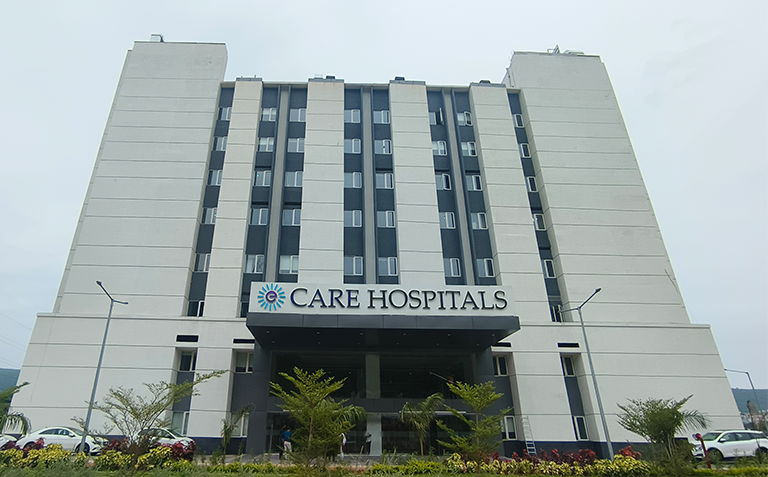-
Doctors
-
Specialities & Treatments
Centre of Excellence
Specialties
Treatments and Procedures
Hospitals & Directions HyderabadCARE Hospitals, Banjara Hills CARE Outpatient Centre, Banjara Hills CARE Hospitals, HITEC City CARE Hospitals, Nampally Gurunanak CARE Hospitals, Musheerabad CARE Hospitals Outpatient Centre, HITEC City CARE Hospitals, Malakpet
HyderabadCARE Hospitals, Banjara Hills CARE Outpatient Centre, Banjara Hills CARE Hospitals, HITEC City CARE Hospitals, Nampally Gurunanak CARE Hospitals, Musheerabad CARE Hospitals Outpatient Centre, HITEC City CARE Hospitals, Malakpet Raipur
Raipur
 Bhubaneswar
Bhubaneswar Visakhapatnam
Visakhapatnam
 Nagpur
Nagpur
 Indore
Indore
 Chh. Sambhajinagar
Chh. SambhajinagarClinics & Medical Centers
Book an AppointmentContact Us
Online Lab Reports
Book an Appointment
Consult Super-Specialist Doctors at CARE Hospitals

Radiation Oncology
Radiation Oncology
Best Radiation Oncology Hospital in Hyderabad
CARE Hospitals Hyderabad offers advanced cancer treatment services, including radiation oncology, accompanied by empathetic patient care, making the latest technology accessible to our patients. We recognize cancer is an overwhelming diagnosis, and our network holds relentless dedication toward precision treatment and compassionate care.
As per the Profile of Cancer and Related Factors—Telangana 2021 report, Telangana faces a daunting cancer problem, with projected numbers of cancer patients reaching over 53,000 by 2025! This creates a pressing need to ensure access to advanced cancer care of global standards that is personalized for every patient’s individual needs to maximize chances of cure for every patient. Having served thousands of cancer patients over the past decade, we at CARE Hospitals understand the pressing need to ensure empathetic, advanced, personalized, safe and effective cancer care for all our patients. To ensure these goals, we have a highly experienced and internationally trained multidisciplinary team of cancer specialists/oncologists who work together to plan and execute a personalized, evidence-backed treatment plan for every patient with an intent to provide lasting disease control and a potential cure for them.
Radiating Hope: Significance of Radiation Therapy
Radiation therapy is among the most common forms of cancer treatment. You might hear it called radiation oncology, radiotherapy, irradiation, x-ray therapy, radiation treatment, or simply radiation.
Radiation treatment significantly improves treatment outcomes both in terms of disease control and potential cure, and more than 70% of cancer patients need radiation treatment at some point in their treatment journey. Our radiation oncology team is here to walk beside you every step of your experience, providing not only professional medical expertise but also a friendly and caring environment.
Why Choose Us?
Choosing the right place for radiation therapy and cancer treatment is one of the most important decisions you'll make. At CARE Hospitals Hyderabad, our Radiation Oncology department is a leader in the field, combining technological excellence with a deep loyalty to patient well-being. We offer an integral approach to cancer care, ensuring that you receive the precision treatment and compassionate care you deserve.
Expert Team of Experienced & Internationally Trained Radiation Oncologists: Our radiation oncologists have clinical experience of up to 25 years, and having collectively treated over 20,000 patients in their careers ensures they can deal with complex cases to achieve positive outcomes.
- Advanced Technology: We use the newest linear accelerator equipment (VersaHD) and imaging systems, which allows us to deliver radiation extremely accurately. New tools and techniques like SRS, SBRT, IGRT, VMAT & brachytherapy permit precise targeting of the tumor while protecting the surrounding healthy tissue and minimizing side effects of radiation.
- Team of Technical Experts: Radiation treatment is teamwork. We work in tandem with experienced medical physicists, dosimetrists, oncology-trained nurses and radiation therapists to deliver accurate treatments and closely monitor the progress of patients.
- Personalized Treatment Plans: We recognize that each cancer and each patient is unique. We develop an individualized treatment plan based on your specific diagnostic attributes, level of health, and lifestyle in order to provide the most effective and least invasive treatment possible. Our "multidisciplinary tumor board" approach to patient care means that the treatment plan you receive is the result of combined expertise.
- Integrated Comprehensive Care: Our care does not stop at the hospital alone. We provide all support services, including patient support, nutrition, and palliative care. Our intention is to help you and your family through every step of the process to make it comfortable for everyone.
- Patient Safety and Quality Assurance: Your safety is a priority for us. The department has a rigorous quality assurance program run by a team of medical physicists that makes sure all equipment is calibrated, and we can deliver a treatment plan with precise accuracy.
- Convenience and Access: We strive to make your entire treatment journey as easy as possible. We try to make your appointments as timely as possible and to reduce wait times and make your recovery our focus area.
- Proven Reputation: As part of the CARE Hospitals Group, we have a significant reputation for achieving successful patient outcomes. We strive to deliver care to patients according to international standards and are committed to improving our care outcomes through research and clinical practices.
We Offer
- World-class Leading Technology
- Expert Team of Experienced & Internationally Trained Radiation Oncologists
- Seamless Care Coordination
- Cutting-edge Technology—SRS, SBRT, IGRT, VMAT & Brachytherapy IMRT Advancements
- Personalized Treatment Plans by a Multidisciplinary Team of Experts
- Safe & Comfortable Environment.
- Patient Safety & Recovery
- Advanced Pain Management
- Timely Access to the CARE team and Support Services
Why is Radiation Therapy Indicated?
Radiation therapy is thus treated as one highly versatile and effective treatment modality, covering a vast number of indications in modern medicine. Sometimes, it acts as a pillar of cancer care generally. In other instances, it is administered in different non-malignant conditions. It is generally recommended for:
- Primary Cancer Treatment (curative intent): Radiation, being a curative treatment, is used to kill cancer cells and achieve a complete cure in many localized cancers, such as those at different stages of the prostate, head and neck, cervix, lung, upper gastrointestinal tract, anal canal, and some types of skin cancers. It may be combined with low doses of chemotherapy to achieve better results.
- Adjuvant Therapy: This is given after surgical treatment. It is a broad therapeutic procedure whereby radiation therapy targets cancer cells at microscopic levels that may probably be left behind after surgery, thereby decreasing the possibility of a recurrence in some forms of cancer such as breast cancer, rectum cancer, head and neck cancers, soft tissue sarcomas, uterus & cervix cancers, and brain tumors.
- Neoadjuvant Therapy: Radiation therapy is generally administered before surgery or chemotherapy to shrink large tumors, which enables easier surgical removal and enhances the possibility of the surgery being successful. Most commonly it is used for rectal cancers and esophageal (food pipe) cancers.
- Palliative Care: Radiation therapy in advanced or metastatic cancers is intended to stop the symptoms like pain & obstruction and promote further quality of life. It is highly effective in pain control from bone metastases, for relieving pressure from a brain tumor, or for stopping bleeding.
- Benign Brain Tumors: Some nonmalignant brain tumors, such as meningiomas and acoustic neuromas or schwannomas, are targeted very precisely with stereotactic radiosurgery (SRS) to prevent tumor growth without open dispersive surgery.
- Inflammatory and Degenerative Diseases: LDRT (low-dose radiation therapy) was a good choice and a very viable option for some non-malignant entities, especially if other treatment modalities had failed. That being said, LDRT could be considered due to the anti-inflammatory effects it brings about.
- Heterotopic Ossification: Radiation therapy is used to inhibit the abnormal formation of bone in soft tissue; this condition may occur after trauma or joint replacement surgery.
- Keloid Scars: Radiation is administered after surgical removal of keloid scars in patients prone to keloids so as to inhibit fibroblast cell proliferation and prevent recurrence.
- Prophylactic Therapy: The radiation may be given to an area indolent for the spread of cancer, even though no cancer exists at present in that particular area. For example, prophylactic cranial irradiation may be given to certain types of small cell lung cancer.
- Combined Modality Treatment: The radiation therapy is often combined with chemotherapy, immunotherapy, or hormone therapy as part of a comprehensive treatment plan to get a synergy in effect. This is the case in many lymphomas and cancers of the head and neck.
LDRT at CARE Hospitals: A Non-Surgical & Advanced Alternative for Benign Tumors, Pain and Degenerative Diseases
Low-dose radiation therapy (LDRT) is medically a very low-dose, non-invasive radiation therapy used to treat inflammation in very localized areas. It is primarily indicated for benign painful tumors and inflammatory and degenerative diseases when other conventional means, such as medication, physical therapy, steroid injections, etc., have not or could not have succeeded.
- Innovating in a Non-Surgical Approach: The hospital is a leader in offering Low-Dose Radiation Therapy (LDRT) for various non-cancerous conditions, combining a modern take on alternatives to surgery and corticosteroids for managing chronic pain and degenerative conditions.
- Targeted Treatment with Proven Results: At CARE, we aim for LDRT to work right where the problem lies, ironing out inflammation and suppressing disease activity. Numerous cases that have met with success and longevity exist along with phenomenal LDRT-driven pain relief and enhanced quality of life.
- Conditions We Treat:
- Orthopedic Conditions: Radiation delivered in low doses has been found to reduce chronic inflammation related with musculoskeletal conditions like Osteoarthritis of different joints including knee, hip, shoulder and joints of small bones of hands and feet. This way, it reduces pain and stiffness associated with these conditions and slows down the progression of the degenerative process. Other common conditions that improve with LDRT include plantar fasciitis (foot sole/heel pain), frozen shoulder syndrome, Achilles tendonitis, etc.
- Neuro-Associated Conditions: This provides some relief against a few pain cases such as trigeminal neuralgia and nerve-related pain, where operation feels like a last resort. Not only is it limited to the onco, ortho, and neuro, but it is also indicated for a few more conditions where it shows a phenomenal success rate. Encouraging results have been reported in early stages of Alzheimer's disease and Parkinson's disease, wherein low-dose radiation has benefitted patients with delayed progression and even stopped further deterioration of their conditions.
- Slow Down Progression of Disease: Besides relieving pain, LDRT is most essential in decelerating the progress of diseases and suppressing the onset of so many benign and degenerative conditions, thus helping patients stay functioning and be able to move about.
- Safe and Efficacious: This stands in contrast to that which may be used traditionally since it is both safer and more advanced, with minimum side effects. It forgoes the risks and prolongs tissue damage, thereby enhancing quality of life.
How is Radiation Therapy Performed?
There are 3 types of radiation, yet sometimes more than 1 type is used. The therapy for radiation depends on the conditions of the cancer and its location in the body.
- External radiation (or external beam radiation): External radiation, also known as external beam radiation, utilizes a machine that directs high-energy rays into the tumor from outside the body. It is considered an ambulatory procedure performed in an outpatient hospital or treatment center.
- Internal radiation (brachytherapy): Internal radiation is also known as brachytherapy. During this process, the radioactive sources are introduced into the body, either inside or adjacent to the tumor.
- Systemic radiation: Systemic radiation therapy uses radioactive drugs for the treatment of certain types of cancer. Taken by mouth or put intravenously, these drugs travel throughout your body and precisely deliver effective dose of radiation directly to tumour cells
What are the Advantages of Radiation Therapy?
Radiation therapy is a mainstay for many forms of cancer today, providing a wide variety of benefits and often improved patient outcomes. Up to 70% of cancer patients will need radiation treatment at some stage in their treatment journey and radiation significantly contributes in achieving disease control and/or cure.
- Kills Cancer Cells: Will kill cancer cells by damaging their DNA to prevent them from growing and dividing. Sometimes it just causes enough damage to the capability of tumour cells to divide further.
- Painless and Non-Invasive: It is a painless treatment and provided as a non-invasive treatment.
- Alleviates Symptoms: Very effective at alleviating pain and other symptoms caused by advanced cancer.
- Organ Preservation: Can be an option in lieu of surgery and potentially preserve the organ, such as in cases of larynx, rectum or breast preservation.
- Multiple Uses: Can be used with primary treatment, pre/post surgically, or in combination with other therapies.
- Effectiveness for Benign Conditions: Low-dose radiation has been proven effective for treating inflammatory and degenerative diseases.
- Improved Quality of Life: By reducing symptoms and decreasing the chances of recurrence, it improves the patient's life.
- Delaying Disease Progression: By killing or slowing the growth of cells and the specific condition, it can effectively delay the progression of the disease.
- Minimal Recovery Time: Patients normally go home immediately after the treatment session and resume their normal life.
- Outpatient Procedure: Most treatments are short and performed on an outpatient basis so that patients can continue their normal routines.
What are the Conditions Treated with Radiation Oncology?
Radiation oncology is a flexible medical specialty that treats a wide variety of conditions, including malignant tumors and chronic inflammatory and degenerative diseases, with ionizing radiation as a curative, adjuvant, or palliative treatment.
- Malignant Cancers (Tumors):
- Solid Tumors: breast, prostate, lung, head and neck, gastrointestinal, gynecological, brain, and skin tumors.
- Lymphomas and Leukemias: Usually are combined with chemotherapy to treat the involved lymph nodes or total body irradiation for bone marrow transplants.
- Pediatric Tumors: Specifically treat solid tumors in children, e.g., Wilms' tumor or neuroblastoma.
- Chronic Inflammatory and Degenerative Diseases:
- Osteoarthritis: Prospective lower-dose radiation therapy can improve pain and inflammation in joints.
- Plantar Fasciitis: A non-invasive method of treatment for the inflammation of the connective tissue of the sole of the foot.
- Bursitis and Tendonitis: Reduce chronic inflammation of the fluid-filled sacs or tendons around joints.
- Ankylosing Spondylitis: Decrease inflammation of the spine.
- Heterotopic Ossification: Reduce or prevent abnormal bone tissue growth once after surgery or injury.
- Neurological Conditions and Pains:
- Benign Brain Tumors: Non-surgical treatment options include Stereotactic Radiosurgery (SRS), which can be used for conditions like meningiomas and acoustic neuromas.
- Trigeminal Neuralgia: Radiation can treat trigeminal neuralgia, which is a debilitating nerve pain in the face, by delivering one very focused dose of radiation to the nerve root.
- Arteriovenous Malformations (AVMs): Radiation can be used to treat AVMs, which are abnormal tangles of blood vessels in the brain or spine, and if you can treat them effectively, they can help avoid a rupture and bleeding.
- Alzheimer’s Disease: Early-stage Alzheimer's disease progression may be delayed by this radiation treatment.
- Movement Disorders—Parkinson’s disease, essential tremors, etc.
- Internal and Other Specific Departments:
- Vascular: Used to inhibit re-narrowing of blood vessels after stenting procedures (brachytherapy).
- Dermatology: Effective in treating non-melanoma skin cancers as well as benign conditions, such as keloid scars and Dupuytren's contracture.
- Musculoskeletal: Prevents heterotopic ossification, which is known as the abnormal formation of bone that could occur following a hip replacement or some type of trauma.
Advanced Radiation Therapies & Technologies Offered at CARE Hospitals
CARE Hospitals, Hyderabad, offers various approaches to radiation therapies based on the patient's specific needs, which include:
- SRS—Stereotactic Radiosurgery—uses very high radiation doses delivered at precisely localized spots so as to kill tumor cells or ablate areas causing pain or tremors in trigeminal neuralgia & movement disorders, respectively.
- IMRT/VMAT (Intensity-Modulated Radiation Therapy): It is an advanced form of 3D-CRT wherein computer-controlled linear accelerators shape the radiation beam and also modulate its intensity to conform to the three-dimensional shape of the tumor.
- IGRT (Image-Guided Radiation Therapy): The unique feature of an IGRT procedure is the imaging taken during a treatment session that provides additional information in treatment setup and adapts the treatment plan to changes in patients' anatomy or target volume position or shape, such as tumor shrinkage or tumor movement.
- SBRT (Stereotactic Body Radiation Therapy): This is a highly precise radiation technique capable of irradiating the tumor with a very high dose in only a few sessions and is most conveniently used for small, well-demarcated tumors.
- Brachytherapy: It is the internal radiation therapy in which a radioactive source is placed either temporarily or permanently inside or near the tumor.
- TBI (Total Body Irradiation): A treatment that delivers radiation to the entire body. It is usually performed as preparation of the body for bone marrow transplant or stem cell transplant.
- LDRT (Low-Dose Radiation Therapy): Uses very low doses of radiation to target and modulate inflammatory processes. It thus offers a non-invasive alternative in the treatment of chronic inflammatory conditions.
Many developments in radiation therapy accelerators are now being observed, including:
- CyberKnife: The CyberKnife is a robotic radiosurgery system used for non-invasive tumor treatment.
- Elekta Unity: Elekta Unity is an MR-guided linear accelerator (MR-linac) combining an MRI scanner and a linear accelerator. This allows for visualization of the tumor and the surrounding organs during treatment in real-time so that the clinicians may adapt the plan on a daily basis.
- TrueBeam: TrueBeam is a linear accelerator system for standard and advanced radiation therapies.
- Ethos Adaptive: Ethos Adaptive is an AI-powered radiation therapy system that reacts to changes in real time.
- TomoTherapy: TomoTherapy is a treatment system combining a CT scanner with a linear accelerator operating in the helical mode of delivering radiation.
- Versa HD: Versa HD is a linear accelerator improving radiation delivery in a very precise and very fast manner.
- Halcyon Radiation: The Halcyon Radiation Therapy System is an extremely simplified and streamlined linac designed for easy operation and a good patient experience. The system has full imaging capabilities built-in as well so that fast disease treatment can be realized.
Our Expert Team of Doctors
Being one of the major oncological centers, CARE Hospitals in Hyderabad has a team of highly qualified radiation oncologists, medical oncologists and surgical oncologists providing curative and palliative cancer care. This multidisciplinary team draws on their expertise in the treatment of different types of cancer on a case-by-case basis. They are especially concerned with the welfare of the patient long after treatment. They believe in holistic care that encompasses both the body and the mind of the patient and his or her family.
The hospital, with its state-of-the-art facilities and cutting-edge technology, plays an essential role in the success of treatment for cancer and its related conditions. CARE Hospitals is equipped with the latest tools and technology that include minimally invasive techniques, robotic surgeries, and state-of-the-art radiation therapy systems to ensure scrupulous administration of treatment with minimal side effects. The availability of well-equipped Intensive Care Units (ICUs) makes sure that the topmost care is given in times of critical need and acts as a cushion for patients, especially post-complicated surgeries during their recovery.
Our Doctors
-
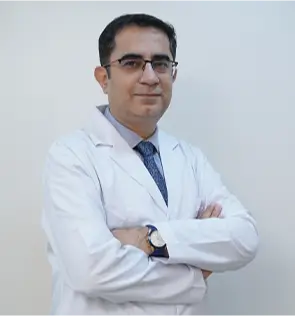
Dr. Amit K Jotwani
MD, FHPRT, FSBRT, FCBT, AMPH(ISB)
Radiation Oncology
View More -

Dr. Pragna Sagar Rapole S
MBBS, MD (Radiation Oncology)
Radiation Oncology
View More -

Dr. Sarath Chandra Reddy
MBBS, DNB (Radiation Oncology)
Radiation Oncology
View More -

Dr. Syed Touseef
MBBS, DNB, PDCR
Radiation Oncology
View More
Our Locations
CARE Hospitals, a part of the Evercare Group, brings international quality healthcare to serve patients across the world. With 16 healthcare facilities serving 7 cities across 6 states in India, we are counted among the top 5 pan-Indian hospital chains.
-

CARE Hospitals, Banjara Hills, Hyderabad
Road No.1, Banjara Hills, Hyderabad, Telangana - 500034
-

CARE Hospitals Outpatient Centre, Banjara Hills, Hyderabad
BabuKhan Chambers, Road No.10, Banjara Hills, Hyderabad, Telangana - 500034
-

CARE Hospitals, HITEC City, Hyderabad
Old Mumbai Highway, Near Cyberabad Police Commissionerate, Jayabheri Pine Valley, HITEC City, Hyderabad, Telangana - 500032
-
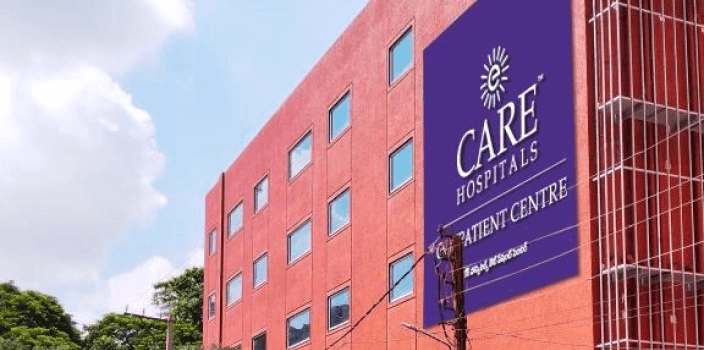
CARE Hospitals Outpatient Centre, HITEC City, Hyderabad
Jayabheri Pine Valley, Old Mumbai Highway, Near Cyberabad Police Commissionerate HITEC City, Hyderabad, Telangana - 500032
-
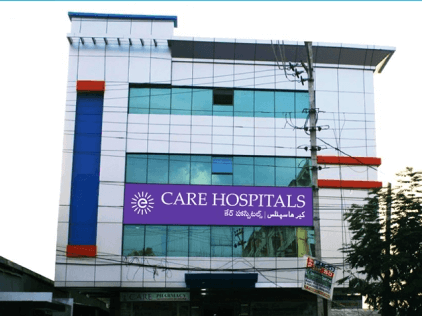
Gurunanak CARE Hospitals, Musheerabad, Hyderabad
1-4-908/7/1, Near Raja Deluxe Theatre, Bakaram, Musheerabad, Hyderabad, Telangana – 500020
-

CARE Hospitals, Nampally, Hyderabad
Exhibition Grounds Road, Nampally, Hyderabad, Telangana – 500001
-
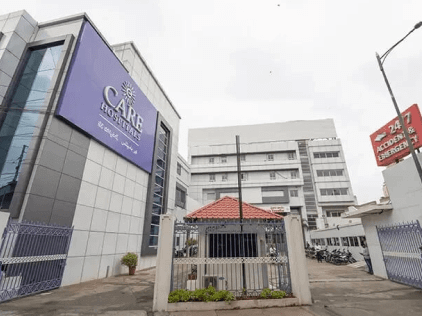
CARE Hospitals, Malakpet, Hyderabad
16-6-104 to 109, Metro Pillar Number 1393, Old Kamal Theater Complex Chaderghat Road, Opp Niagara Hotel, Chaderghat, Hyderabad, Telangana - 500024
-
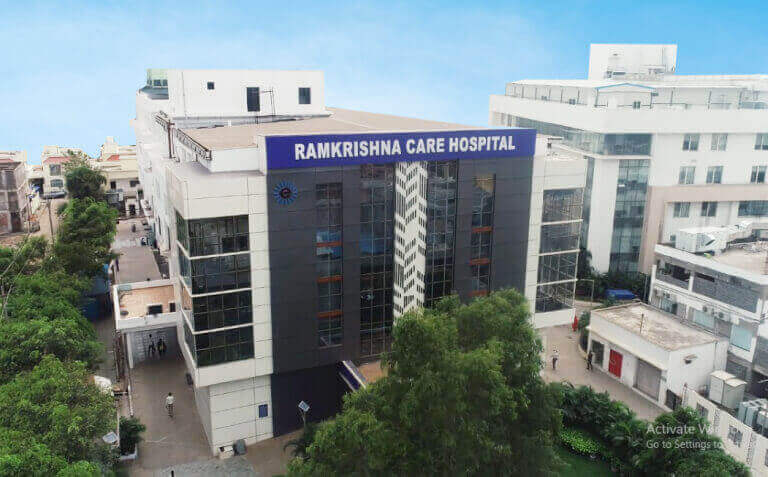
Ramkrishna CARE Hospitals, Raipur
Aurobindo Enclave, Pachpedhi Naka, Dhamtari Road, Raipur, Chhattisgarh - 492001
-

CARE Hospitals, Bhubaneswar
Unit No.42, Plot No. 324, Prachi Enclave Rd, Rail Vihar, Chandrasekharpur, Bhubaneswar, Odisha - 751016
-
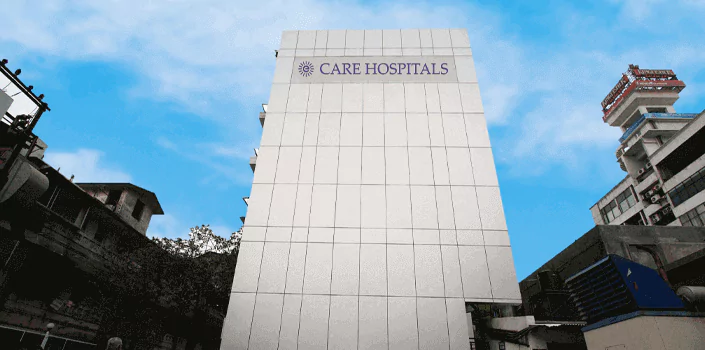
Ganga CARE Hospital Limited, Nagpur
3 Farmland, Panchsheel Square, Wardha Road, Nagpur, Maharashtra – 440012
-
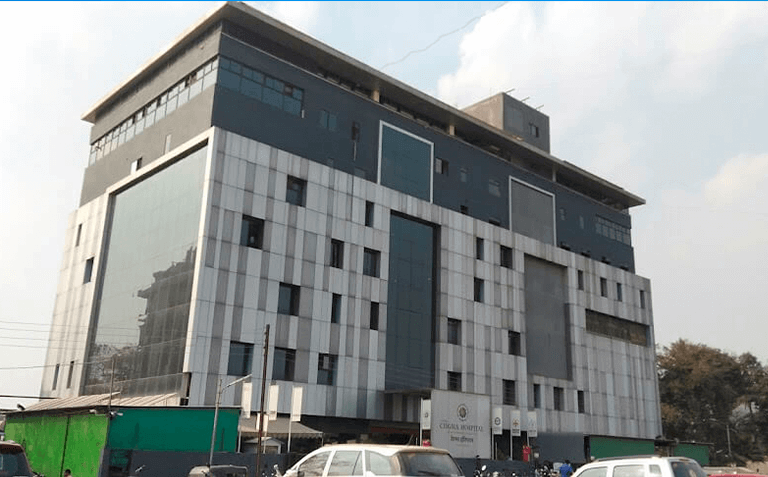
United CIIGMA Hospitals (A unit of CARE Hospitals), Chh. Sambhajinagar
Plot no 6, 7, Darga Rd, Shahnoorwadi, Chh. Sambhajinagar, Maharashtra 431005
Doctor Videos
-
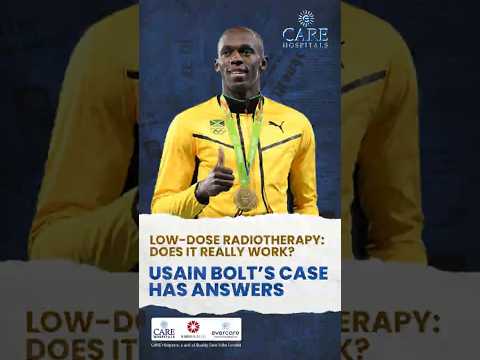

What Usain Bolt’s Journey Reveals About Chronic Joint Pain | Dr. Amit Jotwani | CARE Hospitals.
-


CARE Samvaad: Healthy Joints Explained — What Everyone Needs to Know
-


All About Breast Cancer | Dr Amit Jotwani | CARE Hospital, HITEC City, Hyderabad
-


A survivor who have defeated the cancer | | Dr Amit Jotwani | CARE Hospital, Hitec City, Hyderabad
-
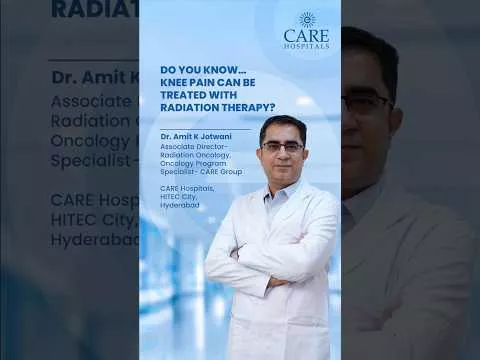

Do you know, knee pain can be treated with radiation therapy? | Dr Amit Jotwani | CARE Hospital
-
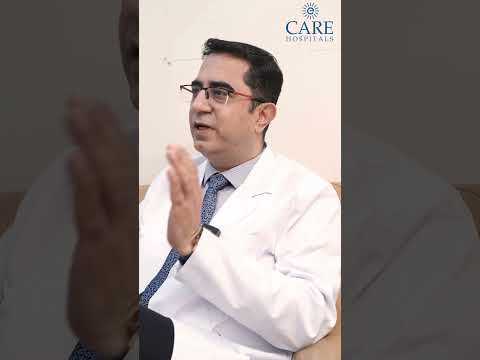

A survivor who have defeated the cancer | Dr Amit K Jotwani | CARE Hospital, HITEC City, Hyderabad
-


Radiation therapy isn’t just for cancer | Dr Amit K Jotwani | CARE Hospital, HITEC City, Hyderabad.
-
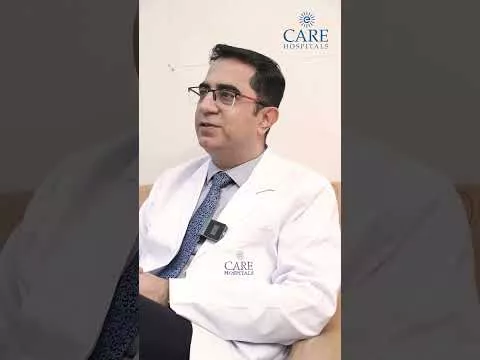

How i treated my Patient with Radio therapy (LDRT) | Dr Amit K Jotwani | CARE Hospital, Hitech
-
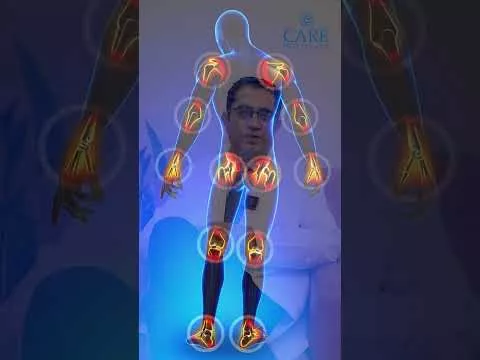

Radio therapy isn’t just for cancer – discover how it’s helping treat benign disorders safely
-
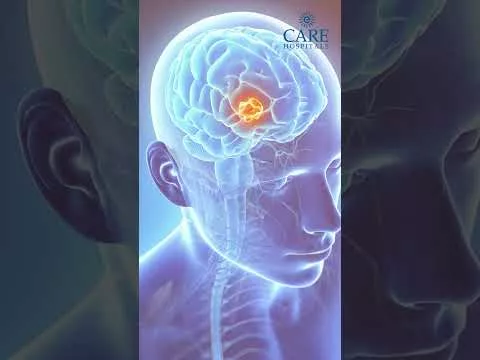

We are pleased to welcome Dr. Amit K Jotwani, Associate Director- Radiation Oncology, CARE Group
-


How to Diagnose Breast Cancer at an Early Stage? | Dr. Syed Touseef | CARE Hospitals, HITEC City
-


Do all breast cancer patients need complete breast removal? |Dr. Syed Touseef|CARE Hospitals, HITEC
-


Is breast cancer life long? | Dr. Syed Touseef | CARE Hospitals, HITEC City
-


What is Stereotactic Radiosurgery? | Dr. Sarath Chandra Reddy | CARE Hospitals
-


Difference Between IMRT and IGRT | Dr. Sarath Chandra Reddy
-


Treatment of Cervical Cancer (Carcinoma Cervix) | How is Cervical Cancer Treated?
-


What is Radiation Therapy? | Dr. Sarath Chandra Reddy | CARE Hospitals
-
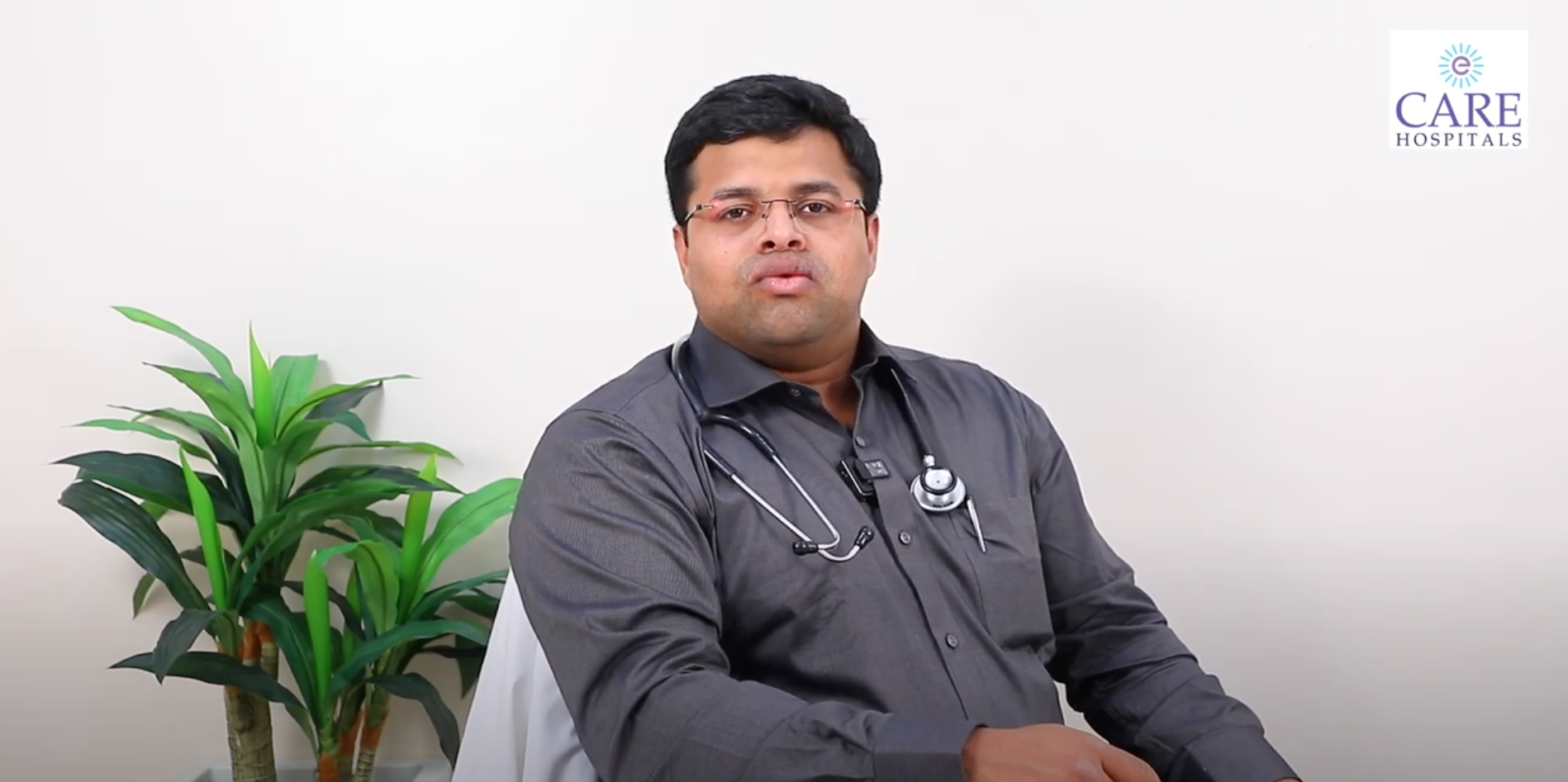

స్టీరియోటాక్టిక్ రేడియో సర్జరీ (SRS) | డా. శరత్ చంద్ర రెడ్డి | కేర్ హాస్పిటల్స్ హైటెక్ సిటీ
-


గొంతు క్యాన్సర్ - చికిత్స | డా. శరత్ చంద్ర రెడ్డి | కేర్ హాస్పిటల్స్ హైటెక్ సిటీ
-


ప్రోస్టేట్ క్యాన్సర్ - ఎలా గుర్తించాలి మరియు దాని చికిత్స విధానం| డా. శరత్ చంద్ర రెడ్డి
-


Recent Developments in the Treatment of Cancer | World Cancer Day | Dr Sarath Chandra Reddy
-


How Tobacco Affects the Body | #notobaccoday | Dr Pragna Sagar | CARE Hospitals, Hi-Tec City
-


Why do we observe #notobaccoday | Dr Syed Touseef | CARE Hospitals, Hi-Tech City
Frequently Asked Questions
Couldn’t find what you were looking for?
Need any help? Get a Call Back.

Still Have a Question?





